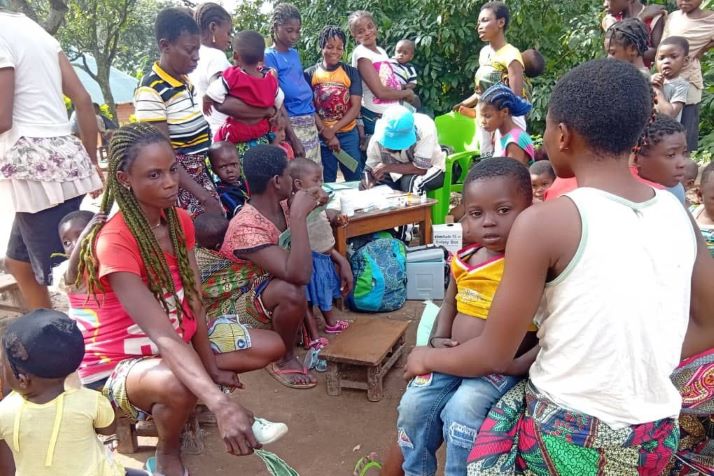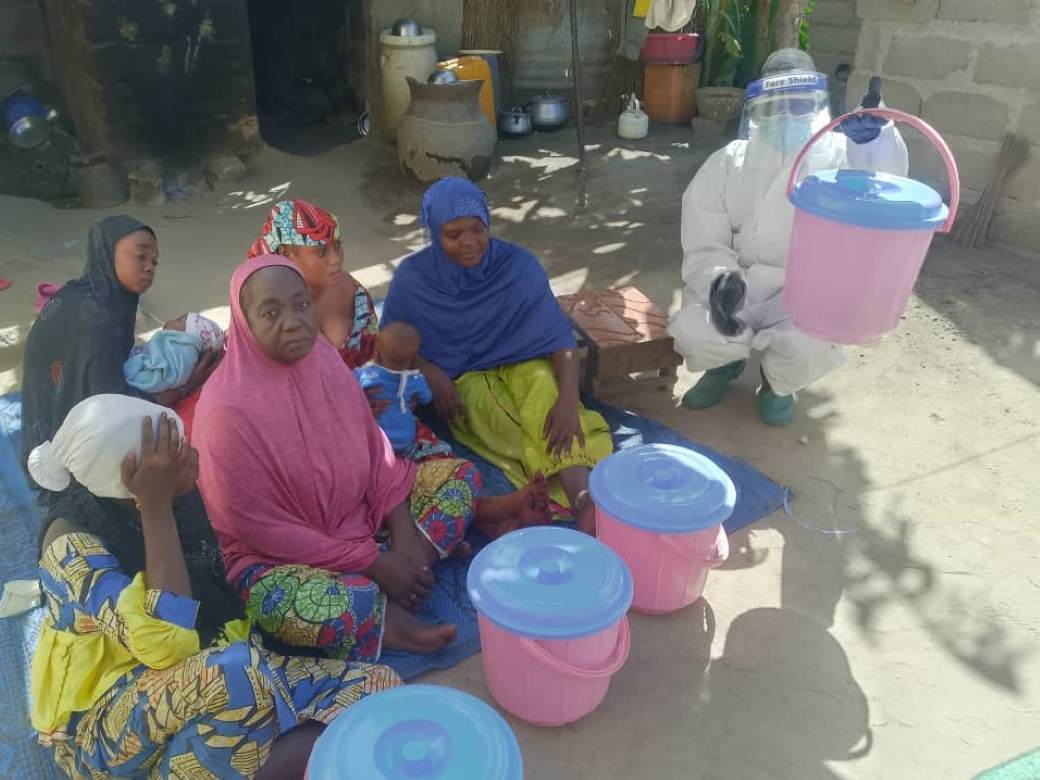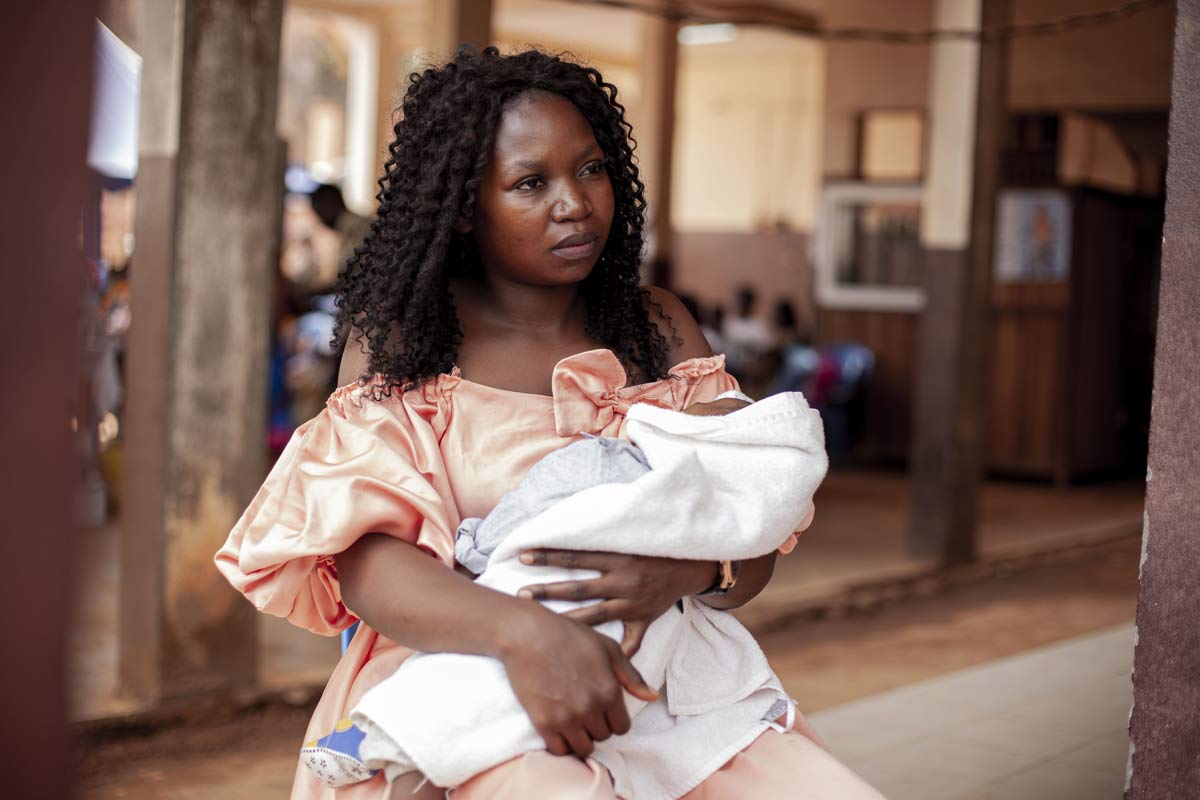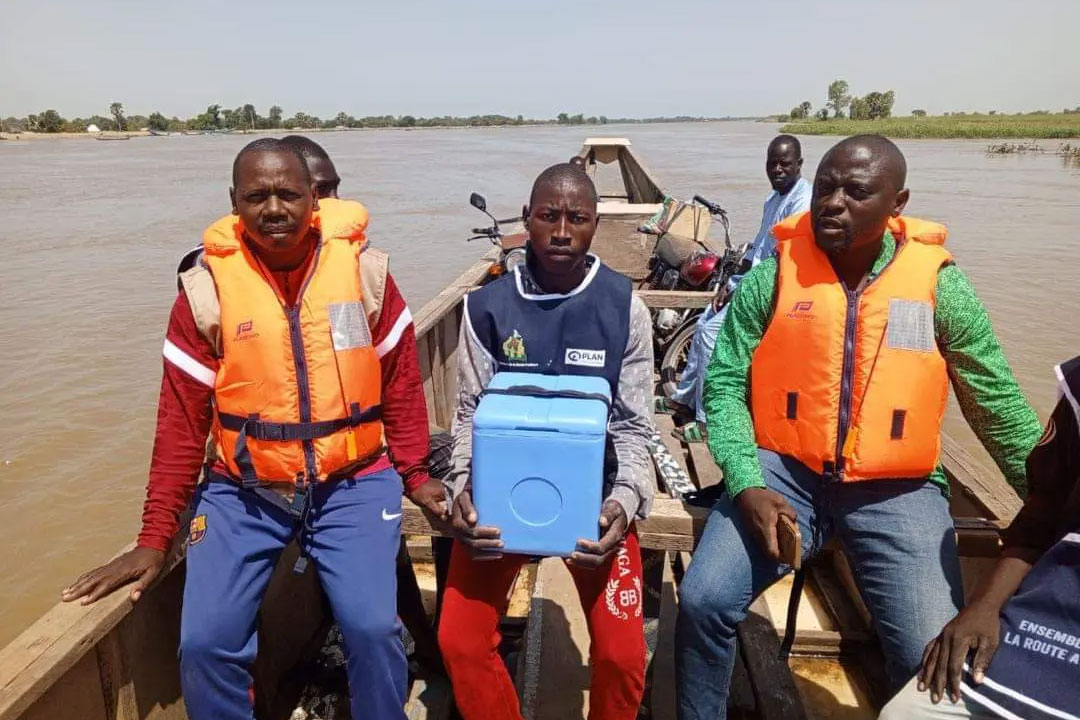African countries step up the fight against zoonotic disease
Faced with the mounting threat of animal disease spillovers, four African countries are working together to educate human communities on staying safe.
- 13 December 2023
- 7 min read
- by Nalova Akua
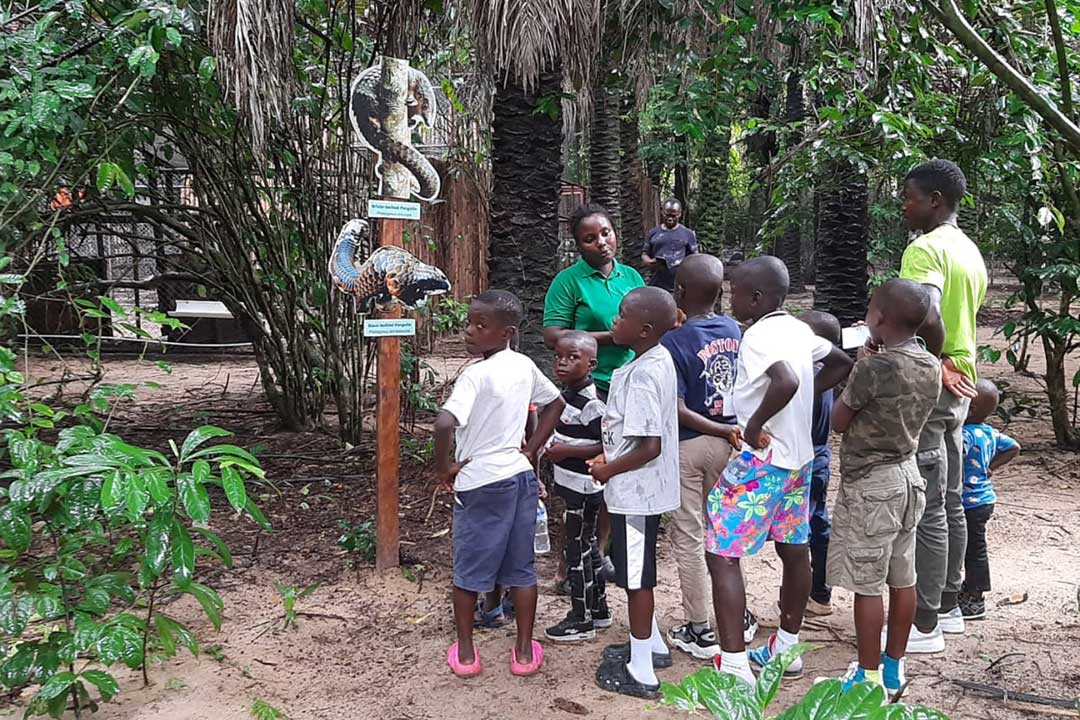
Cameroon, Liberia, Nigeria and Zambia may differ starkly in terms of geography, history, culture and resources, but one thing these four African countries share is a common worry. Zoonoses – diseases transmitted between animals and humans via direct or indirect contacts - are a growing risk.
Cameroon and Nigeria are mpox-endemic countries, having witnessed several cross-species outbreaks of the viral infection formerly known as "monkeypox" in recent years. Liberia has been struck by several outbreaks of Ebola. Meanwhile, Zambia is currently battling its worst human anthrax outbreak since 2011.
“People cannot make decisions about how to protect themselves and their community from zoonotic diseases if they do not know the origins.
– Wilson Ateh, Limbe Wildlife Centre, Cameroon
Since November 2022, wildlife organisations in each of these four countries have been running a joint operation to confront this threat: the Transnational African Zoonosis Education Campaign. Coordinated by the Germany-based conservation charity ProWildlife, the campaign will run until April 2024. Its aim: lasting behavioural change to make both people and animals safer.
Zoonotic spillover can occur by many mechanisms, some of which – like the consumption and handling of wild animals' meat – are more avoidable than others.
The threat of zoonoses isn't limited to these four countries – Zambia, notably, is just one of five countries in east and southern Africa currently struggling with an anthrax epidemic – but ProWildlife Executive Director Andrea Höppner says that these four countries stood out for the availability of "committed and reliable partners" who could take forward the campaign's work.
"Our common goal is to identify and apply the most successful approaches for educating people about zoonoses, with a view to creating a toolbox that can be used for existing educational programmes, but also for new campaigns globally," Höppner tells VaccinesWork.
Public knowledge of zoonoses in Africa – and of the health risks of handling wild animals – is often limited.
"It would be unrealistic to claim to completely stop zoonoses," Höppner asserts. "What we can and want to offer with this campaign, is to reduce the risks of zoonotic spillover events from bushmeat or the keeping of wildlife as pets, and to achieve a long-term change in consumer behaviour."
Limbe Wildlife Centre leads campaign in Cameroon
Despite having seen multiple zoonotic outbreaks linked to bushmeat consumption, many Cameroonians still consider monkey bushmeat a delicacy, and regularly eat other types of bushmeat, too.
Demand for bushmeat in urban centres also makes hunting a potentially lucrative source of income, which indirectly leads to the transmission of zoonoses.
In Cameroon's south west, the Limbe Wildlife Centre (LWC) has taken the Transnational African Zoonosis Education Campaign to the village of Batoke, located in a national park at the foot of Mount Cameroon, and to the people of Ndame Island, in the Gulf of Guinea. Wilson Ateh, the Limbe Wildlife Centre's Head of Education, says the centre has also instituted conservation education outreach programmes in 14 local schools – these have now been updated with information about zoonoses.
“We were concerned that without being able to offer tangible support towards alternatives to bushmeat, we would be met with resistance. But most participants have been extremely receptive and grateful for the information, because of this emphasis on human health.”
– Jeni Vanhoucke, Game Rangers International, Zambia
"This [information] includes defining diseases, identifying where they come from and discussing the risks that they pose to individuals and the community. At these 14 schools, we are reaching a total of 2,100+ students aged 7–16 years," Ateh tells VaccinesWork.
The organisation has also staged educational drama performances, organised football matches, and distributed themed T-shirts – all to spread the message of zoonotic risk to communities in Cameroon. "T-shirts have been used to create a lasting impact as those gifted a T-shirt can take them away and wear them. The LWC worked with a local drama group to prepare a theatre play about zoonotic diseases," Ateh adds.
He says the campaign could not have been timelier, given that most members of the community are still not very much aware of zoonoses and their origins. "People cannot make decisions about how to protect themselves and their community from zoonotic diseases if they do not know the origins. By educating the public about the origins and risks of zoonotic diseases, we hope people will make more informed choices to protect themselves."
Despite some challenges faced by the education team – such as people still viewing bushmeat as a healthy, affordable, and convenient source of protein – Ateh is confident that the LWC will continue reach new communities to raise awareness about the risk of animal disease spillover.
Campaign takes on anthrax in Zambia
Meanwhile, in anthrax-struck Zambia, Jeni Vanhoucke, Community Outreach Director with Game Rangers International, says that through the Transnational African Zoonosis Education campaign, her team has been able to raise awareness about the disease "very quickly" and to "a very wide audience".
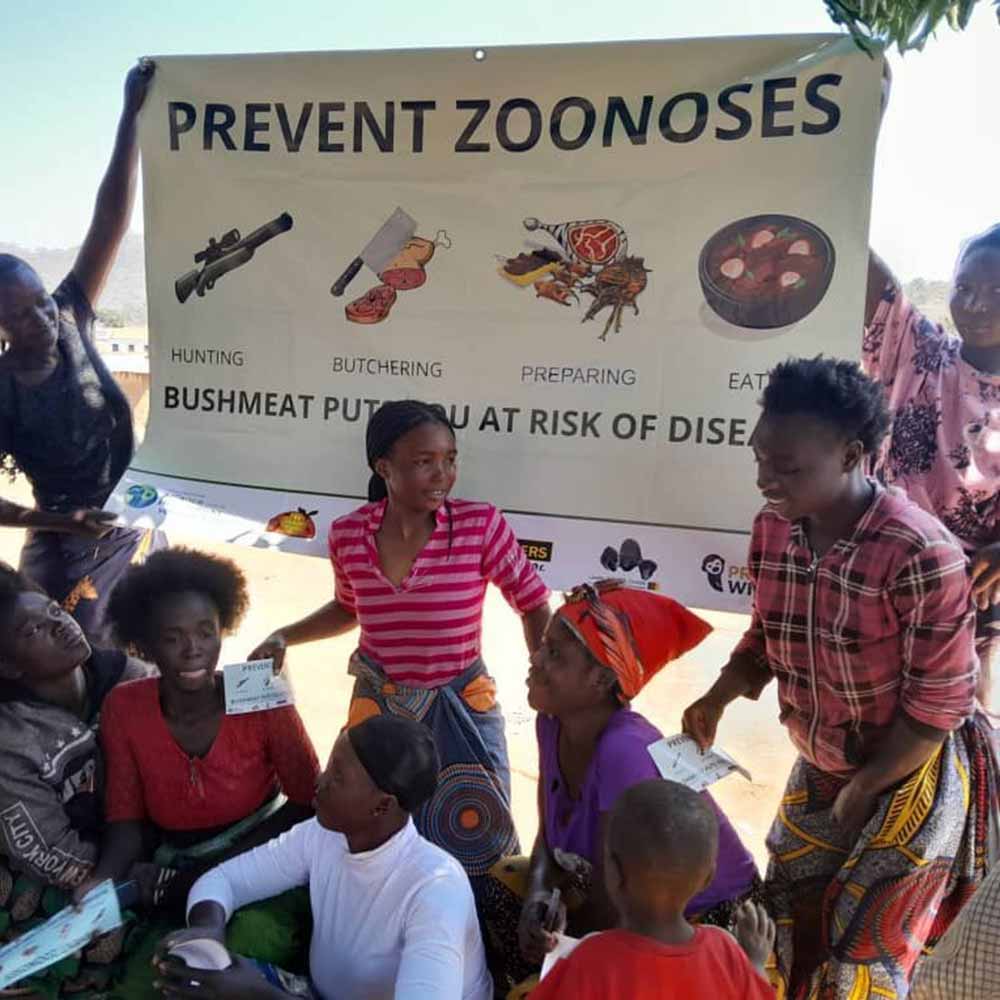
Credit: GRI
"We are confident that we have made a positive impact in protecting people, livestock, and wildlife as a result," she tells VaccinesWork.
Beyond taking on anthrax, the transnational zoonosis education drive has conducted a range of activities in three key landscapes contiguous to protected areas, judged to be zones of potentially high impact. These, Vanhoucke elucidates, have included in-depth school presentations and community meetings, radio shows, and large-scale events like football tournaments, during which messages were broadcast to thousands of spectators.
"To date, we've reached over 18,000 individuals and distributed 800 posters, 1,000 bumper stickers and 200 campaign T-shirts," Vanhoucke says.
She adds: "We have targeted our campaign messaging towards communities with very low levels of education and found that very few participants were familiar with the term or concept of zoonotic diseases."
In Zambia, the campaign has discovered that the secret to success lies in finding the balance between scientifically accurate, and "non-isolating" language. Vanhoucke and her team, for instance, have chosen not to "villainise wildlife", but rather to focus on empowering individuals to protect their families through safe practices.
Have you read?
"We were concerned that without being able to offer tangible support towards alternatives to bushmeat, we would be met with resistance. But most participants have been extremely receptive and grateful for the information, because of this emphasis on human health."
Liberia, Nigeria join the fray
In October this year, Nigeria burnt US$ 1.4 million worth of seized pangolin scales to discourage trafficking. Similar tactics have been used to discourage poaching, buying and selling of bushmeat in Liberia.
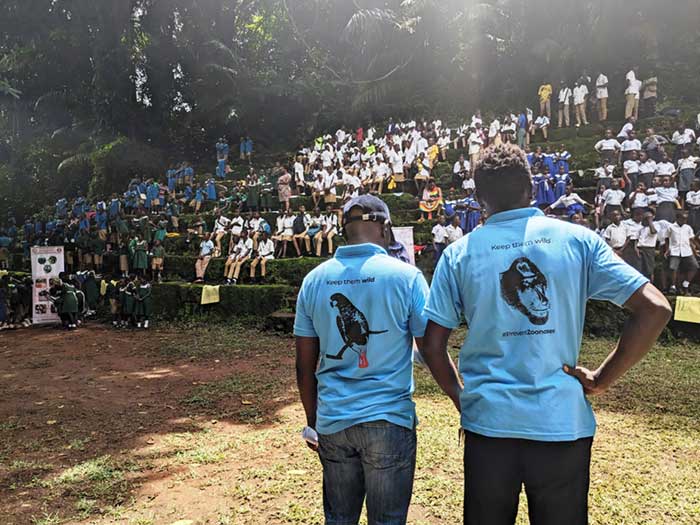
Credit: LWC
Liberia was hard hit by Ebola between 2014 and 2016, with approximately 50% of people who caught the zoonotic haemorrhagic fever dying. Yet, the culture of eating bushmeat is still "very much ingrained" in the west African country, says Mercy Doe, an animal caretaker at the Libassa Wildlife Sanctuary in Liberia.
Doe, who is also an educator on zoonotic disease for the sanctuary, says more people in Liberia are now able to understand the meaning of zoonotic diseases thanks to the ongoing transnational awareness campaign.
“Many animals are traded through different countries in Africa, and the more collaboration between the countries the better.”
– Mercy Doe, Libassa Wildlife Sanctuary, Liberia
"We have reached about 3,000 people so far with schools and communities being our main focus," she tells VaccinesWork.
A 2016 law makes it illegal to poach, trade, consume bushmeat or keep wildlife as pets in Liberia. Doe and her team are working together with the government Forestry Development Agency (FDA) to raise awareness about the law and the risk of catching zoonotic diseases.
"We need to inform [people] of the problems associated with consumption, poaching and the keeping of pets and the increase of emergencies of new zoonotic diseases such as COVID-19," she says. Zoonotic diseases are a global problem, tackling it also requires a multinational effort.
"Many animals are traded through different countries in Africa, and the more collaboration between the countries the better," Doe says. "There is a possibility that the seizure in Nigeria could have contained pangolin scales from Liberia – we all have to work together to raise awareness and help people make [informed] decisions about what they consume and practise a one-health approach in their communities."
Höppner of ProWildlife identifies major differences – and similarities – between the four participating countries taking part in the educational drive. In terms of consumed species, while primate meat is relevant for all the four, bats are a risk group for Cameroon, she points out. Ungulates are regularly consumed in Zambia.
"There are also major similarities, such as the traditional anchoring of bushmeat trade and consumption in these countries, which often goes hand in hand with an underestimation or even a disregard for the associated health risks," says Höppner.
"Another similarity in the four countries is the high grade of urbanisation – and with a high demand for bushmeat among urban population (while having access to other food), an awareness campaign is promising."
